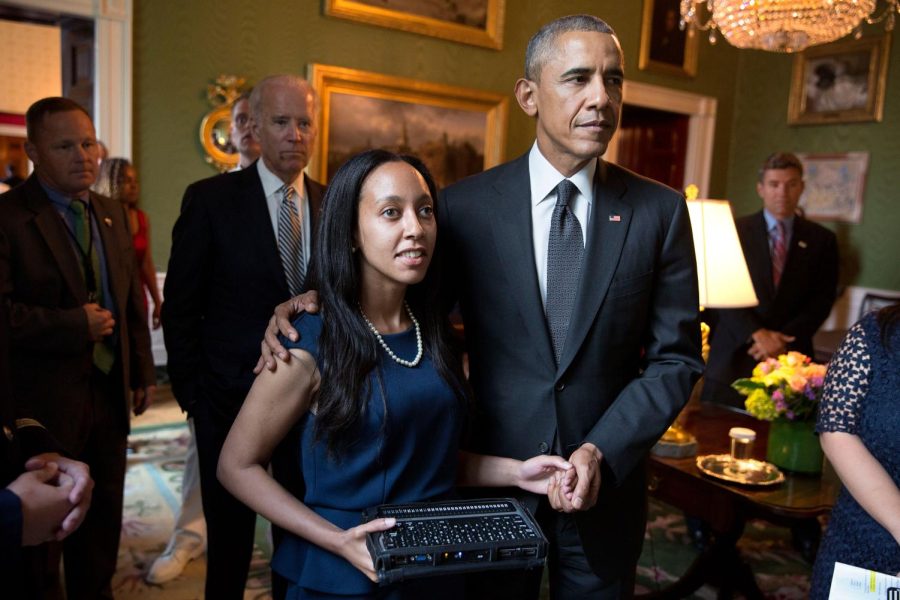Haben Girma, the first deaf-blind person to graduate from Harvard Law School, shared her life and journey of disability rights advocacy with Bucks students on Sept. 27, in a zoom presentation hosted by the Accessibility Office.
“It’s these discriminatory systems of beliefs that are so deeply embedded into our culture that people don’t notice that it’s ableism. Deaf blindness is not the biggest barrier I face; the biggest barrier I face is ableism,” said Girma. According to the Merriam-Webster Dictionary, ableism is “discrimination or prejudice against individuals with disabilities.”
Girma remembers one of the most challenging things growing up was finding a summer job, and although employers were impressed with her grades and volunteer experiences, once they learned she was disabled, Girma said, “they came up with all sorts of excuses not to hire me.”
According to data collected by the United States Bureau of Labor Statistics, the unemployment rate for people with a disability was 10.1 percent in 2021, and for disabled people, Blacks and Hispanics had higher rates of unemployment than Caucasians.
At college, Girma struggled in the cafeteria to find food she could eat because there was not a menu that was accessible to her or in Braille. She eventually threatened to sue the college because they were not providing her equal opportunity, as defined by the Americans with Disabilities Act of 1990. The college quickly provided her with a Braille menu, and Girma said that experience taught her, “that when I advocate, even if it’s for something seemingly small like menus, it has an impact, and could help other students.”
Girma jokingly said that although she did not know how to take legal action, she now knows “there are nonprofits legal centers supporting students with disabilities.” An organization fighting for change is Disability Rights Pennsylvania (DRP), a federal non-profit corporation that provides advocacy to people with disabilities. The DRP works with disabled individuals to assist them with training and education about disability services, legal advice and representation, and assistance.
One of the biggest ways to help disabled community members is for nondisabled people to ask themselves: How can I make this activity inclusive? Girma stresses the importance of equality and inclusion, saying, “Separate is never equal. It could start out with good intentions, but down the line, the separate way will end up with fewer resources, and that’s not equal. What we [disabled people] want is one app, one website, one school, that is accessible to everyone.”
Girma’s advocacy for greater accessibility led her to meet former President Obama at a celebration of the 25th anniversary of the Americans with Disabilities Act at the White House. Girma said that although Obama usually communicates via his voice, he chose to communicate with her via a keyboard, which then translated his words into braille for Girma.
“Inclusion is a choice. It’s a choice whether you will adapt how you communicate, how you teach, how you learn. All of us can make these choices and help create a more accessible and inclusive community,” said Girma.
At Bucks, the Accessibility Office works with students with documented disabilities to help combat ableism and create equal education opportunities and accommodations. Students can find more information about their services at: bucks.edu/resources/accessibility/


